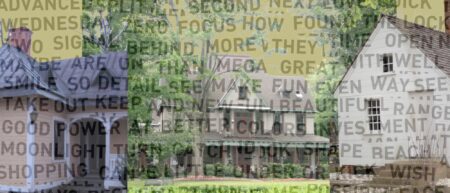On Literary Citizenship
I walked into the poetry reading at West Virginia University, where everything is blue and gold, excited to hear work by professor and author Mark Brazaitis. Students in school colors milled about looking for seats in rows of navy blue plastic chairs facing an oak podium in the Gold Ballroom. The bookstore table was stacked high with copies of Mark’s fiction and poetry collections. I was considering going to graduate school for an MFA in Creative Writing and Mark was sharing pieces from his then-new poetry collection, The Other Language. I loved his work so much that, after the reading, I used the pittance I made from selling jewelry part time at the mall to purchase a copy of each book on the table. As I stood across from him at the author signing table, I told him, “Hey, I’m thinking about doing this with my life, and I’d prefer to not starve to death doing it. What do you think?” We talked about WVU’s MFA program and its requirements, expectations, opportunities, and deadlines.
Then, to my surprise, he signed all of my books. In An American Affair, Mark’s award-winning 2004 George Garret Fiction Prize collection, he simply wrote, “Apply!”
As a girl from an underfunded high school in rural Appalachia, getting this encouragement from an established writer made me feel like I wasn’t a lost cause—constantly operating at an educational deficit. Talking with Mark made me realize I had options. That was when I began to understand that to sustain and continue to exist, writing communities have a duty to perpetuate themselves. To pay the cycle forward by identifying others like us and having very real and practical conversations about writing. Mark signed his novel, Steal My Heart, “I wish you had been in one of my classes. I hope you will be soon.”
I did apply to an MFA program, but the community I found there wasn’t always what I expected. Not long after Mark’s reading, I found myself sitting at a long, polished mahogany table for three hours each week with my classmates attending graduate poetry workshops. During those uninterrupted hours, we sat facing one another in heavy dining chairs talking about each other’s work—in theory, at least. That was the expectation. But there were classmates that tested my vision of literary citizenship. While I had spent hours reading and commenting on their work, the same couple of classmates would often write on my drafts, simply, “Sorry, I didn’t have time to give you feedback,” generally scribbled on the page during the workshop itself. This left me feeling defeated and, frankly, kind of used. In The Art of Recklessness, Dean Young writes of people with MFAs and MFA programs, “We are not a consumer group; we are a tribe” (5-6). Literary citizenship requires active participation in writing communities and is most effective when built from the local level. The foundations of literary citizenship are showing-up, participating in acts of judgment and critique, and celebrating the successes of others, as well as our own.
I showed up for these uncomfortable and disappointing experiences, but I also had really lovely workshop experiences where my partners and I helped each other through particularly difficult trouble spots in our drafts through the process of judgement and critique. We came to workshop with specific concerns about our own work, asked challenging questions about writing, and suggested possibilities for revision and submission for each other’s work, which led to award-winning and published pieces for everyone at the table. With guidance from my thesis committee members, I created my Pushcart nominated poetry collection, Tiny Horses Don’t Get A Choice. Without their feedback, I would not have had the strategies I needed to create a cohesive collection that demonstrated my identity as an emerging writer.
The process of truly working together to create, elevate, and celebrate art is an infinitely more fulfilling experience, and it doesn’t need to happen within the confines of an MFA program. You can find it in online forums, in Facebook groups, at residencies, or with people where you live. For writers, literary citizenship depends on establishing a tribe-like mentality in which each person’s contributions are valued within a reciprocal system of mutual support. This system includes celebration as part of the process. We can celebrate in small ways such as congratulating a friend on a recently published piece or liking a social media post about their progress on a draft. When one of us in the tribe succeeds, we all succeed because we’re all invested in each other’s work.
During the pandemic, the traditional celebrations of other people’s success through book-release parties or readings became nearly invisible, happening more and more often only in digital spaces. With so many digital spaces and such disconnect happening as a result of the pandemic, it was difficult to feel like part of the literary community. And yet we needed to continue to engage in celebration. As I became comfortable operating on platforms like Zoom and recording instructional videos for the intensive writing classes I was by then teaching, I started imagining how I might use these elements to create a new-to-me way to participate in literary citizenship.
I created “Conversations with Writers,” an educational YouTube series that catalogues writing strategies and philosophies through casual interviews with other writers. Even though I didn’t have a studio set-up or even a sample product to show prospective participants, when I reached out to Mark Brazaitis about doing an interview with me as I started my series, he generously agreed. In “Conversations with Writers: Mark Brazaitis—Give It Time,” we celebrate the 2018 publication of Mark’s The Rink Girl. I couldn’t believe it had been fifteen years since he scribbled out, “With all best wishes for your writing” inside my copy of The Other Language, while sharing possible pathways into the writing life inside WVU’s Gold Ballroom.
Even though we’ve all increasingly returned to in-person events, we can and should continue to look for new ways to highlight each other’s victories because doing so strengthens us all. I always feel charged up to write after attending events such as readings, plays, and conferences, because I’m engaging with the process of celebration. When the job feels fun, it’s a lot easier to successfully perform. A desire to engage with the process of judgment and critique may be what draws us into writing communities, but celebration is what keeps us here.
It’s a misnomer that writing is an isolated, solitary act. In reality, it takes a whole village—a tribe—to make a story, a poem, a play, an essay, a book, or any other piece of writing worthy of audience time and attention. And we begin building that tribe by showing up for one another.
—
Andi Stout is an Appalachia writer and author of Pushcart-nominated Tiny Horses Don’t Get A Choice. Her work has appeared in Mulberry Literary, Variant Literature, The Aerial Perspective, Northern Appalachian Review, Fire Poetry, and Still: The Journal, among others. Andi earned her MFA at West Virginia University and lives in Pennsylvania.



